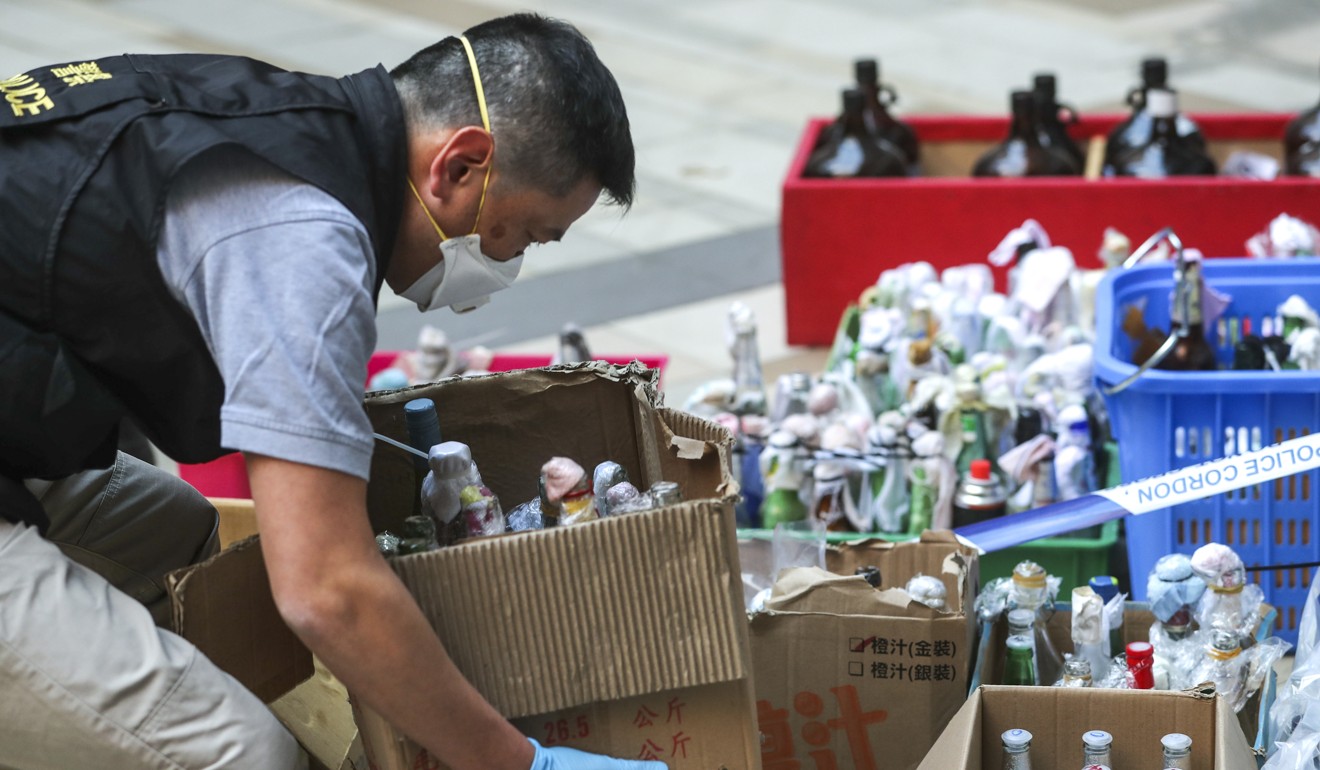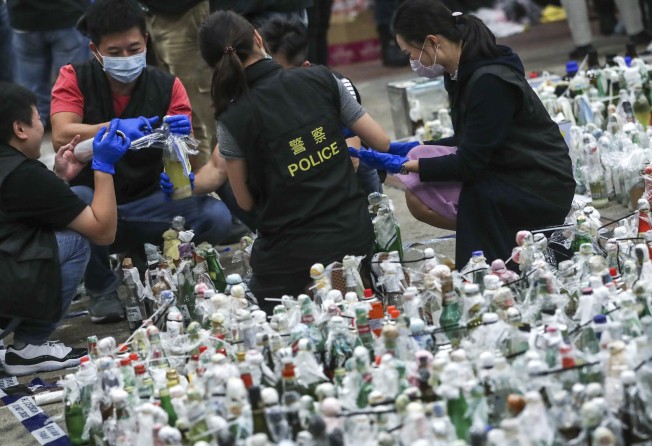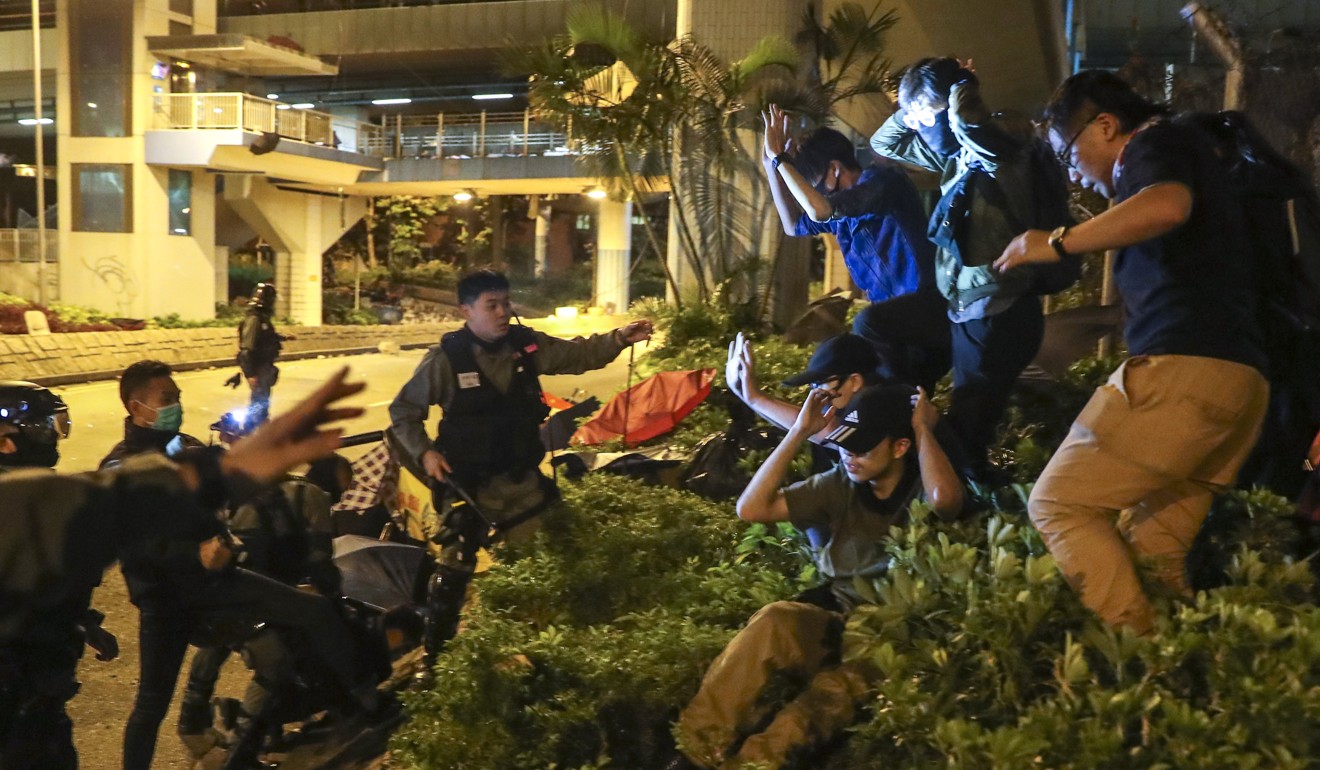
Hong Kong protests: more petrol bombs and offensive weapons found at Polytechnic University on Sunday
- University alerted police and firefighters on Sunday, when a further 41 petrol bombs and other weapons were uncovered
- Police and firefighters, who had to suspend operations because of protests near the campus, plan to continue their work on Monday

More than 40 petrol bombs and other weapons were found on the wrecked campus of Polytechnic University on Sunday, a day after police finished collecting evidence and lifted a 13-day cordon around the site, the scene of violent clashes between radical anti-government protesters and the force two weeks ago.
Police said they were alerted by PolyU at 1.30pm on Sunday to a small number of petrol bombs and dangerous chemicals still on the grounds after the initial clear-up.
Officers from the emergency services found 41 petrol bombs, 10 bottles of various chemicals and a gas canister.
Both the police and fire departments said the removal operation had to be suspended because of protests in the area on Sunday. They planned to return to the campus on Monday to pick up the remaining weapons.

Earlier, the university said in a statement that 20 petrol bombs and several offensive weapons were found on the campus in the morning. It immediately alerted police and firefighters.
The PolyU statement said the campus was still strewn with debris. With the grounds dangerous for students and staff, management asked for their understanding that access could not be granted to the site on Monday and Tuesday.
Bosses said the university had hired an environmental consultant to obtain samples for further analysis for dioxins and cyanide, and the results would be announced when they were available, they added.

More than 1,000 radical protesters and their supporters occupied the campus about a fortnight ago, and engaged in fierce battles with police on November 17. They blocked the roads near the university leading to the Cross-Harbour Tunnel and started fires on nearby bridges.
The force responded with tear gas, sealed all campus exits and asked all those inside to leave.
About 1,100 people came out in the days that followed, although some escaped. Those aged 18 or above were arrested on suspicion of rioting, while about 300 minors were let go after recording their details – although police reserved the right to pursue criminal cases against them later.
But an unknown number of holdouts refused to leave the campus, some saying they were afraid of being arrested and mistreated by police.
When police locked down the campus, they adopted a medical-treatment-first policy and allowed every holdout to be treated as minors if they left the campus on their own.
On Thursday and Friday, police officers and firefighters went to the campus to search for evidence and remove hazardous items. A total of 3,989 petrol bombs, 1,339 pieces of explosives and 601 bottles of corrosive liquid were found, whereas 573 weapons were seized.
Some 1,377 people were arrested from areas in and around the university, including 810 holdouts and 567 from the surroundings.